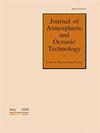大型生物采样器在全海洋深度工作环境下的方案设计与保压性能分析
IF 1.9
4区 地球科学
Q2 ENGINEERING, OCEAN
引用次数: 0
摘要
设计了一种新的全海洋深度大型生物保压采样器(FMPS),用于从深海海底采集保压大型生物样本。建立了FMPS回收过程中压力补偿的数学模型。分析了FMPS结构参数、压力补偿器结构参数和取样环境对其保压性能的影响。利用开发的FMPS工程样机,进行了FMPS内压试验、高压室模拟取样和保压试验。试验结果表明,FMPS的关键部件可以承受115MPa的压力,FMPS可以在115MPa的高压室内完成取样动作,压力保持在105.5MPa,压降率(FMPS回收过程中的压降与取样点压力之比)为9.13%,实验结果与理论计算相一致。试验验证了FMPS设计的可行性和保压的可靠性,为全海洋深度采样装置的设计和制造提供了理论依据和技术支持。本文章由计算机程序翻译,如有差异,请以英文原文为准。
Scheme Design and Pressure-Retaining Performance Analysis of Macro-biological Sampler in the Full-Ocean-Depth Operating Environment
A new full-ocean-depth macro-organisms pressure-retaining sampler (FMPS) was designed to collect pressure-retaining macro-organisms samples from the abyssal seafloor. A mathematical model for pressure compensation in the FMPS recovery process was developed. The effects of FMPS structural parameters, pressure compensator structural parameters and sampling environment on the pressure retention performance of FMPS were analyzed. Using the developed FMPS engineering prototype, FMPS internal pressure test, high-pressure chamber simulation sampling, and pressure-retaining test was carried out. The test results show that the key components of FMPS can carry 115MPa pressure, FMPS can complete the sampling action in the high-pressure chamber of 115MPa, the pressure is maintained at 105.5MPa, and the pressure drop rate (ratio of pressure drop during FMPS recovery to sampling point pressure) is 9.13%, the experimental results are consistent with the theoretical calculation. The test verified the feasibility of FMPS design and the reliability of pressure retention, providing a theoretical basis and technical support for the design and manufacture of full-ocean-depth sampling devices.
求助全文
通过发布文献求助,成功后即可免费获取论文全文。
去求助
来源期刊
CiteScore
4.50
自引率
9.10%
发文量
135
审稿时长
3 months
期刊介绍:
The Journal of Atmospheric and Oceanic Technology (JTECH) publishes research describing instrumentation and methods used in atmospheric and oceanic research, including remote sensing instruments; measurements, validation, and data analysis techniques from satellites, aircraft, balloons, and surface-based platforms; in situ instruments, measurements, and methods for data acquisition, analysis, and interpretation and assimilation in numerical models; and information systems and algorithms.

 求助内容:
求助内容: 应助结果提醒方式:
应助结果提醒方式:


